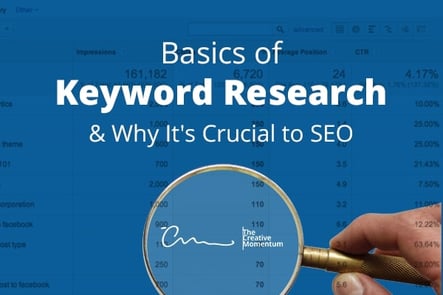
If you’re trying to create an online presence for yourself, you’ll need to stay up-to-date with news regarding Google’s algorithms. The nature of SEO is constantly changing, and this means what might have worked a year ago is no longer the best plan of action – especially if you’ve been known to practice black-hat tactics in the past.
While it’s known for its rapid changes, there’s one component that always stays the same: keyword research. If your goal is to build a website by following the principles of inbound marketing, you’re going to know how to research keywords and use them properly. Here’s how you can get started.
It Begins With Your Business
Before jumping into the deep end of keyword research, you first need to have an idea of what is important to you. Take out a notebook and write down a few relevant categories that you think are important to your business and then start brainstorming. This will help you get a good idea of where you should start.
Also, as you brainstorm, try to place yourself in the shoes of your target audience members. Try to think about their needs and what they’re looking to gain from your product.
Turn Your Brainstorming into Keywords
Now that you’ve written down some words that are relevant to your business, try to think about them in terms of Google keywords. Suppose two of the phrases that you wrote down are “cloud technology” and “CRM.” Think about how someone searching Google for your service would use these keywords. They would probably write something like “what’s the best CRM?” or “CRM with cloud technology” and so on.
Another part of good keyword research is looking at what other people are searching and how it relates to your goods and services. Tools like Google AdWords Keyword Planner, Google Trends, and HubSpot’s Keyword Planner are all great for getting data analytics that break down the volume, traffic estimates, and popularity of different keywords.
Why Keyword Research Matters
Keyword research is one of the most important steps in making a website SEO-driven. Without it, that top-notch content that you’ve been writing is not optimized to attract visitors and boost sales.
With a well planned research strategy that incorporates your own thoughts and ideas with various keyword and SEO tools, you’ll be able to come up with a list of keywords that better reflect your company and make it easier for people to organically stumble across your site. Proper research will also decrease the chances of your getting the wrong traffic: people not matched to your page. Because what good is more page views if they don’t generate leads?

